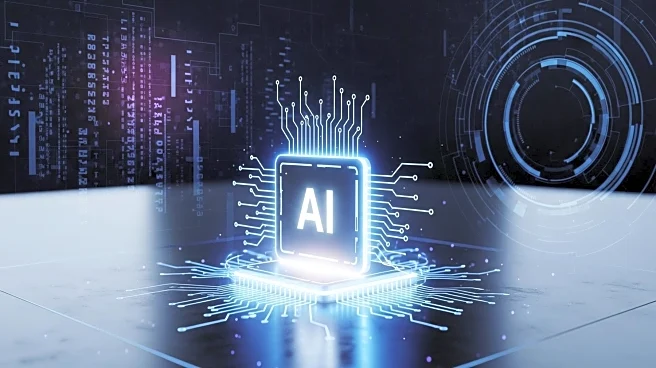What's Happening?
Anthropic has introduced Claude Sonnet 4.5, a new AI model that promises significant improvements in coding capabilities. The model includes features such as checkpoints for saving progress, code execution, and file creation, enhancing the functionality of Claude Code. The Claude Agent SDK allows developers to create AI agents capable of handling complex tasks and managing memory effectively. Claude Sonnet 4.5 is described as the most aligned model released by Anthropic, with improvements in handling sycophancy, deception, and prompt injection attacks. The model is part of Anthropic's efforts to advance AI technology amid growing competition from companies like OpenAI and Google.
Why It's Important?
The release of Claude Sonnet 4.5 is a significant development in the AI landscape, particularly for the tech industry. By improving coding efficiency and enabling longer autonomous coding sessions, the model could streamline software development processes and reduce the time required for complex projects. This advancement may lead to increased productivity and innovation in tech companies and startups. Additionally, the model's enhanced safety features address concerns about AI behavior, making it a more reliable tool for businesses. As AI technology continues to evolve, models like Claude Sonnet 4.5 could play a crucial role in shaping the future of software development and AI integration.
What's Next?
With the launch of Claude Sonnet 4.5, developers are likely to explore its capabilities further, leading to new applications and innovations in AI-driven software development. The model's release may also prompt competitors to enhance their own AI offerings, intensifying the race for AI supremacy. As AI becomes more integrated into business processes, discussions around ethical AI use and the need for regulatory frameworks are expected to grow, particularly concerning issues like data privacy and AI accountability.
Beyond the Headlines
The introduction of Claude Sonnet 4.5 highlights the growing trend of AI models becoming more autonomous and capable of handling complex tasks over extended periods. This shift could lead to a reevaluation of the role of human developers, as AI takes on more of the coding workload. Additionally, the model's ability to maintain focus and coherence over long tasks may influence how AI is perceived in terms of reliability and trustworthiness, potentially impacting its adoption across various industries.









